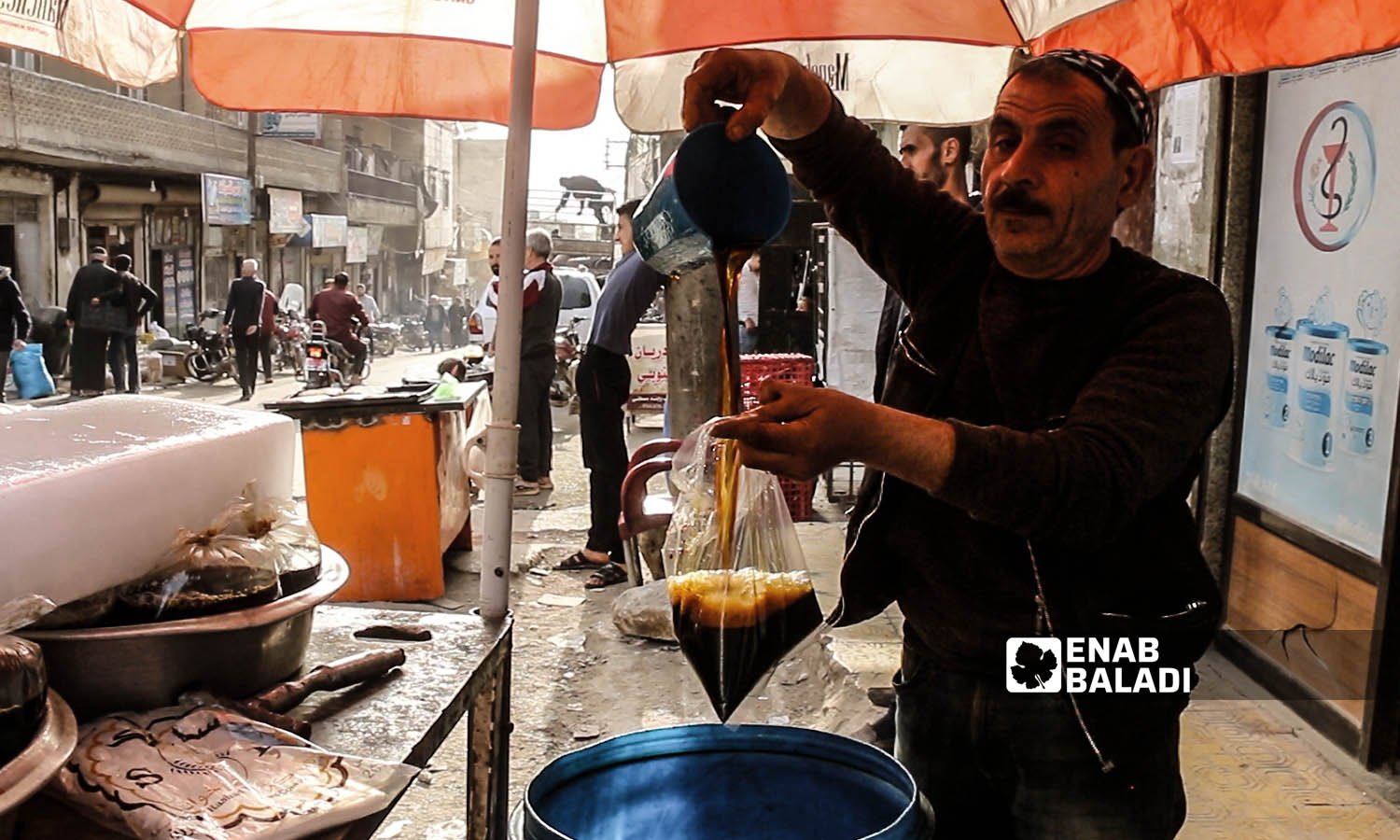



Enab Baladi – Idlib
Wasim al-Sayed, 34, awaits Ramadan to leave his daily work in porterage and work on a stand selling Ramadan juices that he sets up in Idlib city, northwestern Syria.
Al-Sayed, a displaced man from the Damascus suburbs, told Enab Baladi that many workers and employees are waiting for Ramadan to work on stands selling juices and drinks, which “generate a fair profit.”
But demand this year has fallen dramatically due to the harsh living conditions that Syrians are experiencing nowadays, he added.
There are many drinks that are part of the Ramadan heritage in Syria, important rituals even, that people cannot do without. Thus, in recent years, some workers developed a habit of setting up stands of Licorice, Tamarind, and Qamar al-Din drinks for profit.
In addition to other drinks that people tend to consume during the holy month of Ramadan, such as Vimto, al-Sayed reminds of a popular saying “Water derivatives never go out of business.”
However, the saying quoted by the young man who is in his thirties is no longer valid in light of the changing living conditions in Idlib and the difficulties faced by the population when it comes to securing their basic needs.
Most of the owners of stands on the city’s sidewalks are day laborers because selling beverages is physically “less tiring” compared to working in porterage or construction and is financially more lucrative.
Al-Sayed said that they “get paid about 30 Turkish liras per day working in porterage” and that “this amount is not enough to provide a full meal for the workers’ families,” adding that in case of injury, the worker stays at home and cannot work for long periods.
This is also a chance for these workers to take a rest from porterage during Ramadan.
However, “working in porterage has become more profitable than selling drinks this year. During the first week of Ramadan, some workers closed their stands and returned to working in porterage, as they only sold five liters of the Tamarind drink” al-Sayed labels it a major loss for the worker.
According to reports by the humanitarian REACH Initiative, it takes a day laborer in Idlib 65 days to earn the monthly cost of securing basic needs.
About 85 percent of families in northwestern Syria depend for their income on daily wages, and 94 percent of families are unable to secure their basic needs.
Of the city’s total population of 4 million, some 2.7 million are estimated to be in need of humanitarian assistance, according to United Nations High Commissioner for Refugees (UNHCR) reports.
Daily worker Khaled al-Jarrah, 43, predicted a loss in sales of Ramadan beverages during the current season, seeing that “people have greatly reduced their daily expenses in order to afford the basic items of their iftar meals.
“These beverages are not essential to the meal; they merely help create an atmosphere of family intimacy,” he added.
On his stand on an Idlib street sidewalk, al-Jarrah sells a liter of Tamarind for ten Turkish liras while believing firmly that “whatever the loss is, it can be compensated in the coming months, but working in porterage or transporting sand and concrete blocks during Ramadan is very backbreaking, especially while fasting. No matter how much we sell, all is well”.
Some workers depend on the daily iftar campaigns organized by charities during Ramadan and on the food baskets that food organizations distribute, allowing workers to save a portion of their monthly expenses, according to al-Jarrah.
if you think the article contain wrong information or you have additional details Send Correction